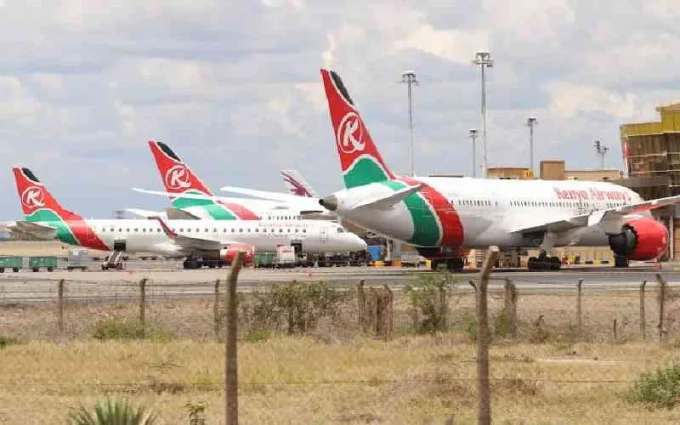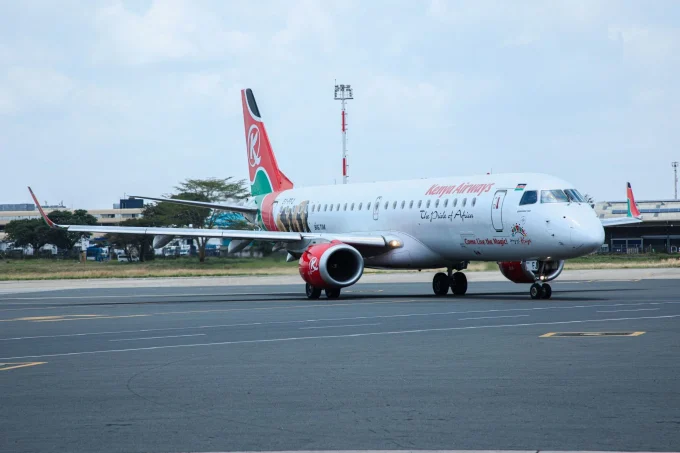A Nairobi-based dealer in farm equipment is positioning itself to reap from the growing use of irrigation as the country moves to attain food security. G North & Son, which imports and exports irrigation equipment, says it has been recording growth in business over the past five years and sees the trend accelerating with more government investment going into irrigation to enhance food security.
“There has been a significant growth of investment in irrigation in the country both by the private sector players and the government,” says Mr Elijah Mugah, the manager in charge of irrigation division at G North & Son, says the government has identified irrigation as a key pillar of Vision 2030, the long-term economic blueprint that seeks to make Kenya a middle-income economy.
The Jubilee government has promised to put over one million hectares of land under irrigation which, he says, will create more opportunities for investors. “Farmers should be made aware of the existing irrigation technologies and encouraged take farming as a business,” he added.
G North installs and distributes irrigation equipment from world-renowned suppliers for drip lines and accessories, greenhouse and tunnel covers and dam liners for water harvesting and dam construction as well as high pressure/long distance water pumps, silage plastics, portable aluminium irrigation sets and pivot irrigation systems.
Mr Mugah said the company, which has been in the business since 1963, offers irrigation solutions in Kenya and exports to other regional and African markets. It has operations in Nairobi on Mombasa road and a branch in Nakuru to tap the vast Rift Valley market. Mr Mugah says the market is primed to grow with other regional countries taking up irrigation technologies and water harvesting to increase food production and achievement of the MDG’s (Millennium Development Goals).
To achieve this, it offers water harvesting solutions by installing both small-scale and large-scale dams, drip irrigation and greenhouses. “Slowly and surely there is an incremental and noticeable adoption of these technologies,” he said in an interview. “The market is there for sure. In fact, a very big market because the solutions we offer to cater for water management, modern water harvesting, fish farming, floods which is being very helpful with the global warming effects.”
Mr Mugah said increased commercial farming has put the private sector at the forefront of promoting irrigation through modern solutions that increase crop output. “With irrigation, the farmers are in charge of their production cycles and schedules,” he said. “This is very critical in meeting the market demands and increasing profitability of farming ventures. Farmers can produce their crops when they want since we offer backyard kitchen garden, open field irrigation, water treatment, and floriculture for farmers who are on low cost investment like those doing mushrooms and strawberries.”
The government is shifting from rain-fed to irrigation agriculture as food shortage threatens to run out of control. Currently, a comprehensive countrywide irrigation expansion programme to cover the 1.7 million acres of potential irrigable land in order to transform our country into a food secured and net exporter of food is under way. In the fiscal year 2011/12, the government allocated Sh10.2 billion to irrigation and that budget is expected to grow in the next fiscal year beginning in July.
Kenya is a water scarce economy and its per capita water availability is way below international levels, worse than some of its East African neighbours, and therefore construction of more dams is a major boost to water supply. According to a 2008 report by the Food and Agriculture Organisation (FAO) of the United Nations, Kenya’s current per capita water availability of 792 cubic meters falls below the scarcity threshold and the projected population growth will further pile pressures on already limited supply.
Mr Mugah said horticulture and floriculture sub-sectors are currently the biggest market for irrigation equipment, but other sub-sectors are coming up. “Any farmer growing crops and plants as a business venture is better off using irrigation,” he said. “By using mulching papers and hydroponics where crops are planted on troughs, farmers are flexible in controlling how their crops grow. Worldwide, irrigation will continue being part of modern farming especially in water scarce country like ours.”
















































![Pula Co-Founders and Co-CEOs, Rose Goslinga & Thomas Njeru. Pula provides agricultural insurance and digital products to help smallholder farmers manage climate risks, improve farming practices and increase their incomes. [ Photo / Courtesy ]](https://businesstoday.co.ke/wp-content/uploads/2021/01/Pula-Co-Founders-and-Co-CEOs-Thomas-Njeru-Rose-Goslinga.jpg)



























































Leave a comment